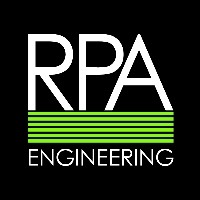When pursuing a career, understanding your background is essential for success. It can help you select the best career and choose a path that suits your personality and skills. It can also help you identify your core values and skills. In this article, we’ll discuss the importance of incorporating work experience into your professional background.
Identifying your work personality style
There are many advantages to understanding your personality type before choosing a career. A personality test such as the Myers-Briggs Type Indicator can help you understand your work style. The test helps you identify the things that are important to you in the workplace and can help you make better career decisions. The results can also help you decide if a specific profession is right for you.
The most important step in choosing a career is understanding your personality style. Some people are more social and enjoy meeting new people, while others may enjoy working alone. Your personality type will determine which career path will be best suited to your interests and skills.
Identifying your core values
Identifying your core values is one of the first steps in determining what career path is best for you. These values are a reflection of your priorities and help you make sense of life’s experiences. It is also an indicator of your mission in life. Sylvia Gale, the director of the Bonner Center for Civic Engagement and the founding director of the Imagining America’s Publicly Active Graduate Education Initiative, has developed a deep reflection exercise that begins with identifying your core values.
Core values are traits that you have developed throughout your life that guide your interactions with others and with the company. They guide the decisions you make and drive your professional development. Knowing your core values can help you stand out during interviews and on job applications. Knowing your values can make it easier to highlight your strengths during interviews and respond to behavioral interview questions in the most effective way possible.
Identifying your skill set
The first step to choosing a new career is to identify your skill set. Identify your strengths and weaknesses and determine if any of them are transferable to another career. Taking a personality evaluation may also help you to narrow down possible career options. For instance, if you are highly extroverted, you may want to find a career in the social sector. On the other hand, if you have a passion for animals, you may want to look for a career that involves working with animals.
Skills are a key component to success in the work environment and are an integral part of your personal development. Skills are a combination of natural abilities and specific knowledge that you have acquired through training or experience. These abilities help you perform well on a job and add value to your employer.
Including work experience in your professional background
Including work experience in your professional background is a key element in the job application process. It shows previous experience, qualifications, and organization. It is also a good way to showcase your talents and accomplishments. Include information about your roles and responsibilities at previous or current companies, as well as any skills or projects you have taken on. You can also include general information, such as your academic background, professional summary, and personal statement.
Your employment history is an important part of your resume, and it should include your full and part-time roles, as well as internships and volunteer work. Include the names of companies, job titles, and dates of employment. When possible, highlight your most important accomplishments. Your employment history is also referred to as your work experience or work history.
Writing a bio that’s concise, authentic and a boost to your personal brand
When writing a bio, use a strategic approach, and avoid writing a ream of accomplishments. Instead, tell a story — a story that’s more interesting than a list of facts. Highlight your passion, your influences, and your unique experiences. Remember to add your contact information at the end.
Identify your audience. A bio is a marketing tool that can be used by potential employers, investors, and potential clients. It should be relevant to the audience, and it should tell them why they should hire you, invest in you, or purchase your services. If you are a professional, state your accomplishments that prove that you’re an expert in your field.
Adapt your bio to each context. For example, Nancy Duarte, a communications professional, keeps her bio under 150 words. The bio also includes a humorous line about her family and dog, which is appealing to people who want to learn more about the business owner.



